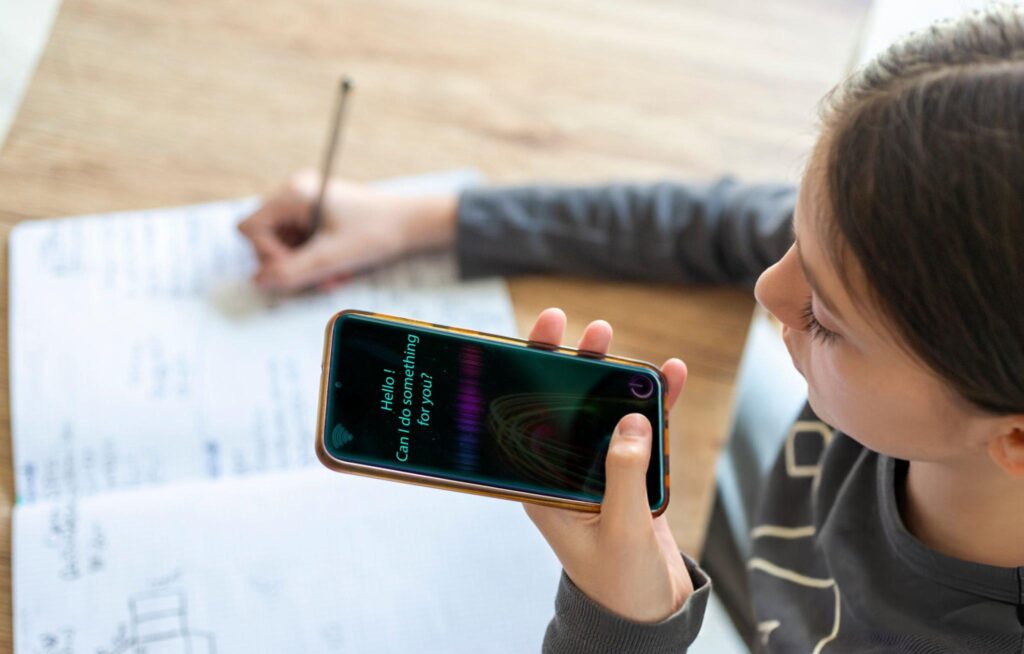If you’ve ever felt nervous speaking English in a meeting, a classroom, or even while ordering coffee abroad, you’re not alone. I’ve been there too.
Back in 2021, I was preparing for an online presentation with an international audience. My slides were ready, my research was strong, but my English speaking confidence? Not so much. I kept stumbling over words, mispronouncing terms, and losing my rhythm mid-sentence. That’s when I decided to try AI tools to improve English speaking — and I was honestly surprised by the results.
Over the past few months, I’ve tested a range of AI-powered language tools to see which ones actually work in real-world situations. Some helped me sound more fluent, others fixed my pronunciation, and a few even gave me the courage to speak without overthinking.
Here’s my experience — and my honest take — on the top AI tools that help you speak better English.
Why AI Tools Are Changing English Speaking Practice
In the past, improving your spoken English meant joining a class, hiring a tutor, or practicing with friends. While these are still great options, they have limits: time, cost, and availability.
AI tools, on the other hand, are like having a 24/7 personal English coach. They listen, correct, and even have real-time conversations with you. You can practice anytime, anywhere, without worrying about judgment. More importantly, they give instant feedback — something that’s hard to get even in a classroom.
A 2024 report by Language Learning Market Insights found that 68% of language learners who used AI tools reported faster improvement in fluency compared to traditional methods. That’s because AI can track your mistakes over time, adapt lessons to your needs, and provide pronunciation training that’s precise down to each syllable.
Top AI Tools to Improve English Speaking: My Tested Picks
After weeks of testing, here are my top recommendations — each one tested for fluency, accuracy, and real-life usability.
1. ELSA Speak – Best for Pronunciation Perfection
When I first tried ELSA Speak, it felt like speaking to a very patient teacher who never gets tired of repeating the same word until I get it right.
ELSA uses advanced speech recognition AI to pinpoint exactly which sounds you’re struggling with. For example, I had trouble pronouncing the “th” sound in “thought.” ELSA didn’t just tell me I was wrong — it showed me how to position my tongue and lips.
Test Result: After 10 days of daily 15-minute sessions, I recorded myself reading the same paragraph I did on day one. The difference was shocking — my speech sounded clearer and more confident.
2. Speak AI – Best for Real-Life Conversation Practice
Speak AI feels like chatting with a supportive native speaker — except you can rewind, replay, and try again without embarrassment.
You pick a topic (ordering food, job interviews, travel conversations), then Speak AI plays out a realistic scenario. It listens to your answers and gives immediate feedback on pronunciation, grammar, and naturalness.
Test Result: I used Speak AI’s “Work Presentation” scenario before a client call. I noticed I was using filler words like “um” and “actually” less often after just three practice runs.
3. Cambly AI Tutor – Best for Structured Speaking Lessons
Cambly has always been known for live tutors, but their AI tutor is surprisingly good for structured practice. You get short speaking exercises that build from basic sentences to complex discussions.
It’s especially good for learners who want a step-by-step approach rather than random conversation prompts.
Test Result: After a week of practicing with Cambly’s AI tutor, I felt more prepared for open-ended conversations because I had built my confidence gradually.
4. ChatGPT with Voice – Best for Creative Speaking Practice
You might know ChatGPT as a text-based AI, but with its voice conversation mode, it’s a surprisingly fun speaking partner.
I used it to role-play situations like “debating a tech startup idea” or “explaining my favorite book.” The beauty of ChatGPT is that you can make the conversation as casual or as challenging as you want.
Test Result: I found that my vocabulary expanded because ChatGPT introduced new words in context. Plus, the conversations felt natural — like talking to a well-read friend.
5. Google AI Speech Tools – Best Free Option for Everyday Use
If you don’t want to pay for a subscription, Google’s speech-to-text and pronunciation tools are a great start.
You can use Google Translate’s microphone to check if your pronunciation is understood correctly. Google’s new AI pronunciation feedback (available in some regions) even gives syllable-by-syllable corrections.
Test Result: I practiced tricky words like “entrepreneur” and “phenomenon” until Google’s AI recognized them correctly every time.
Comparison Table: Best AI Tools to Improve English Speaking
| AI Tool | Best For | Key Strength | My Experience Rating |
|---|---|---|---|
| ELSA Speak | Pronunciation | Detailed phonetic feedback | 9/10 |
| Speak AI | Conversation | Real-life scenario practice | 8.5/10 |
| Cambly AI Tutor | Structured lessons | Gradual speaking confidence | 8/10 |
| ChatGPT Voice | Creative practice | Flexible, natural conversation | 9/10 |
| Google AI Tools | Free daily practice | Easy pronunciation check | 8/10 |
Tips to Get the Most Out of AI English Speaking Tools
From my own journey, here’s what made the biggest difference:
-
Practice Daily, Even for 10 Minutes
Consistency matters more than long, irregular sessions. -
Record Yourself and Compare
Keep audio notes to track your progress over weeks. -
Mix Tools for Best Results
Use ELSA for pronunciation, ChatGPT for creativity, and Speak AI for real-life scenarios. -
Set Real-World Goals
Practice with a purpose — like preparing for a presentation, interview, or trip.
Common Questions About AI English Speaking Tools
Q: Can AI tools make me fluent in English on their own?
Not exactly. They’re powerful practice aids, but you still need real-life speaking experiences with people.
Q: Are these tools better than human tutors?
They’re more accessible and affordable, but human tutors offer emotional connection and cultural context that AI can’t fully replace.
Q: How fast will I see results?
If you practice daily, you may notice improvements in clarity and confidence in 2–4 weeks.
Final Thoughts: Speaking English With Confidence in the AI Era
Before I started using AI tools, I thought my speaking improvement would take months, maybe years. But I was wrong.
The key wasn’t finding a “magic” tool — it was building a habit with the right mix of AI support and real-life practice. Tools like ELSA Speak, Speak AI, Cambly AI Tutor, ChatGPT Voice, and Google AI speech tools didn’t just improve my pronunciation or vocabulary — they boosted my confidence.
Now, when I speak English in meetings or presentations, I’m not thinking about every single word. I’m focusing on what I want to say, not worrying about how I sound. And that’s the real win.
If you’re serious about improving your spoken English, start small. Pick one tool from this list, use it daily, and track your progress. You might be surprised by how fast you start sounding like a confident speaker — not just a learner.



